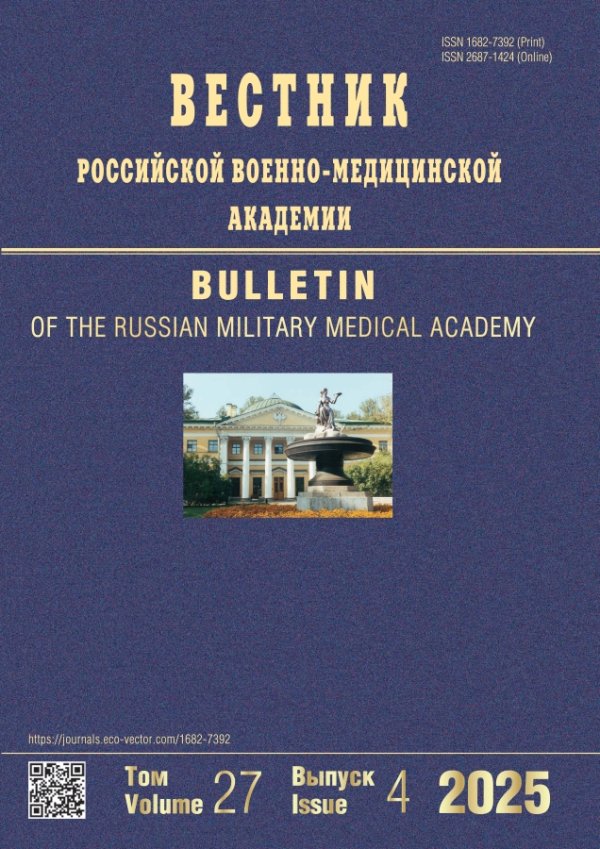Comprehensive rationale for the use of immune plasma for septic patients
- Authors: Skripay L.A.1, Vilyaninov V.N.1, Skripay A.A.2
-
Affiliations:
- Military medical academy of S.M. Kirov
- Academician I.P. Pavlov First St. Petersburg State Medical University
- Issue: Vol 22, No 4 (2020)
- Pages: 91-94
- Section: Experimental trials
- URL: https://journals.rcsi.science/1682-7392/article/view/62812
- DOI: https://doi.org/10.17816/brmma62812
- ID: 62812
Cite item
Abstract
Data of accounting and reporting documents of the Center (blood and tissues) are analyzed retrospectively) the Kirov military medical Academy for the period from 2017 to 2019 on the use of blood components in septic conditions of patients in clinics of the Kirov Military medical Academy. The volume of issued immune plasma for patients suffering from septic complications in 2017, it was 154 doses (33,9 l), in 2018, it was 196 doses (43,1 l), in 2019, it was 389 doses (72,1 l). It was found that in patients suffering from septic complications on the second day after transfusion of blood components, the levels of the studied indicators of the inflammatory process did not change unambiguously. Thus, in patients who received immune plasma transfusion, there was a decrease in white blood cells by 1,5×109/l on the next day after the component was transfused. At the same time, there was a direct decrease in rod-shaped neutrophils, monocytes, erythrocyte sedimentation rate and a decrease in body temperature. In patients who were transfused fresh frozen plasma, white blood cells increased by 0,5×109/l and slightly – monocytes. A slight decrease in platelets in septic patients of group 1 after transfusion of immune plasma indicates the active participation of these cells in the reactions of antibacterial immunity. This can be considered as a favorable prognosis for a particular patient, since there is a direct relationship between the decrease in the number of platelets and the duration of stay in hospital treatment, as well as the overall outcome of the disease. The level of circulating immune complexes in patients of both groups after transfusions of blood components remained within normal values. Levels of fibrinogen, prothrombin, and albumin changed significantly in each group. At the same time, the level of fibrinogen after transfusions increased, and prothrombin changed in different directions. In the treatment of patients, the use of immune plasma activates the system of cells of the body’s antibacterial defense and improves the positive dynamics in treatment. In modern economic realities, testing plasma samples to suppress the growth of microbial colonies is justified, since it helps to reduce the volume of transfused blood components for severe septic patients.
Full Text
##article.viewOnOriginalSite##About the authors
L. A. Skripay
Military medical academy of S.M. Kirov
Author for correspondence.
Email: vmeda-nio@mil.ru
Russian Federation, Saint Petersburg
V. N. Vilyaninov
Military medical academy of S.M. Kirov
Email: vmeda-nio@mil.ru
Russian Federation, Saint Petersburg
A. A. Skripay
Academician I.P. Pavlov First St. Petersburg State Medical University
Email: vmeda-nio@mil.ru
Russian Federation, Saint Petersburg
References
Supplementary files












